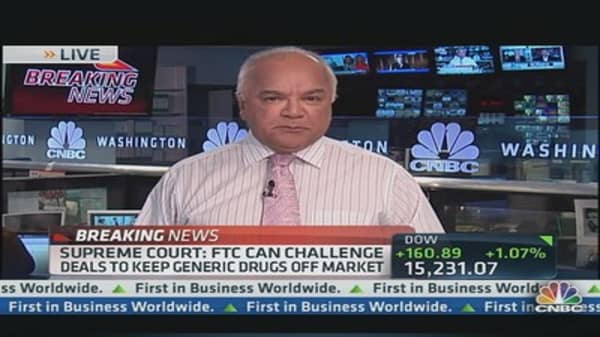A Chicago police officer sues to get overtime pay for using his BlackBerry when he's off the clock.
A New York lawyer sues his law firm in a class action suit alleging he put in more than 40 hours a week and didn't get paid for overtime.
Nine employees for Russell Stover Candies claim the Missouri-based firm mislabeled them as sales representatives and in doing so, deprived them of overtime pay.
And a Dallas stripper sues her former place of work—Baby Dolls— claiming she lap danced 40 hours a week without receiving minimum wage or overtime.
Those are just some cases making up the recent explosion of lawsuits filed by workers against their employers.
"Workers are becoming more aware of their rights," said Lou Pechman, an employment lawyer at Berke-Weiss & Pechman who has handled many of these cases for employees. "There have been some big judgments for workers, and it's natural for them to fight for themselves."
(Read more: Bank of America Paid Bonuses to Foreclose: Lawsuit)
"I saw very few wage issue lawsuits for the first 11 years of my practice," said Carolyn Richmond, a lawyer since 1994 and who works at Fox Rothchild,
"Usually it was worker discrimination cases, but the number of cases on wages has increased a lot over the past few years," said Richmond, who is counsel to the restaurant industry.
While the actual number of cases might seem low—some 7,764 over time lawsuits filed in the U.S so far this year, according to the Federal Judicial Center—the percentage has shot up dramatically.
Collective law suits in federal court alleging wage and hour violations increased some 400 percent from 2000 to 2011. The increase so far this year is 10 percent higher than last year, when 7,064 cases were filed.





